News & Announcements
- Details
- Written by Laura Mirsky
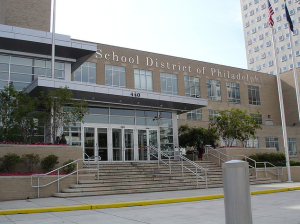 via Flickr Creative Commons User: It's Our City
via Flickr Creative Commons User: It's Our City
The International Institute for Restorative Practices (IIRP) Graduate School has received a multi-year grant from The Philadelphia Foundation’s Fund for Children to implement restorative practices in 10 Philadelphia School District high schools and middle schools.
The IIRP’s SaferSanerSchools Whole-School Change Program will help the schools build relationships between students, staff and parents; create a sense of community; improve student behavior; reduce violence and bullying and establish school climates conducive to learning. Rather than just reacting to incidents after they occur, the program implements proactive techniques that foster relationships and a sense of belonging.
The IIRP’s Whole-School Change Program has been implemented at Bethlehem’s Freedom and Liberty high schools for two years and at Allentown’s William Allen and Louis E. Dieruff high schools for one year. The Bethlehem schools reported significant reductions in disciplinary incidents, particularly following the second year of implementation. In the Allentown schools, discipline referrals are being addressed in a restorative manner and the school climate is improving, due to the commitment of school leadership to restorative processes.
- Details
- Written by Joshua Wachtel
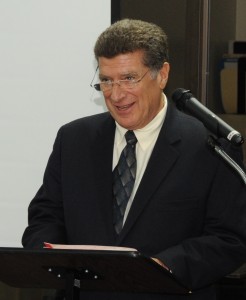 IIRP President Ted Wachtel writes:
IIRP President Ted Wachtel writes:
I sent a letter to the editors of the The New York Times responding to its May 29, 2013, editorial about "The School-to-Prison Pipeline."
"I was pleased to see your editorial highlighting the need for schools to change their approach to school discipline, as recommended by the NY City School-Justice Partnership task force, but the discussion is framed in reactive terms, such as a 'graduated response protocol.' Rather, the first step in reducing misbehavior and violence in schools is to proactively build social capital.In the early 1980s, I co-authored Toughlove, to advise parents and other adults dealing with troubled youth, but in the years since there has been more tough than love in our nation's schools. 'Restorative practices' that build relationships and restore community have been implemented at a growing number of schools--achieving dramatic decreases in bullying, misbehavior, crime and violence (see Improving School Climate research outcomes). The task force report does cite 'restorative justice' as an effective response to wrongdoing, but restorative practices work best when they emphasize prevention."
Read the rest.
- Details
- Written by Joshua Wachtel
This video, in Catalan with English subtitles, portrays a project to implement restorative practices across sectors in the Son Gotleu neighborhood of the city of Palma on the island of Majorca, Spain. It's about 20 minutes long, and includes great video of restorative practices at work and testimonials of adults and children.
- Details
- Written by Joshua Wachtel
The following is the opening of an article from the Bangor Daily News by Judy Harrison.
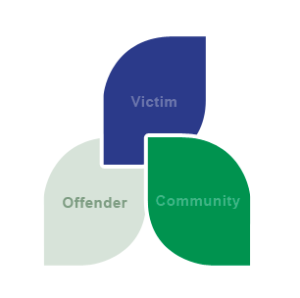 Maine is on the edge of a major reform to its criminal justice system that would replace the current punitive culture with restorative justice principles, an organizer of a daylong conference told participants Tuesday.
Maine is on the edge of a major reform to its criminal justice system that would replace the current punitive culture with restorative justice principles, an organizer of a daylong conference told participants Tuesday.
Sponsored by the Restorative Justice Institute of Maine based in Augusta, about 100 people, including district attorneys, jail officials, police officers, advocates, volunteers and employees with the Department of Corrections and the Department of Health and Human Services attended. Speakers from California, Vermont, Nova Scotia, Canada, and the United Kingdom addressed the theme of the conference — “Realizing our Vision of a Restorative State.”
- Details
- Written by Joshua Wachtel
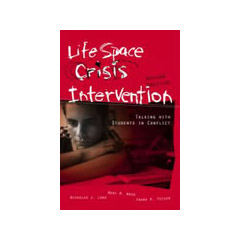 During the summer term, IIRP is offering two new courses in a fully online format, "Restorative Justice in Communities" and "Restorative Practices in Life Space Crisis Intervention." Both classes are 600 level classes, however they only require Basic Restorative Practices (RP 500) as a prerequisite.
During the summer term, IIRP is offering two new courses in a fully online format, "Restorative Justice in Communities" and "Restorative Practices in Life Space Crisis Intervention." Both classes are 600 level classes, however they only require Basic Restorative Practices (RP 500) as a prerequisite.
Assistant professor Dr. Craig Adamson will be teaching RP 622, Restorative Justice in Communities. Craig says that this course looks into what's happening at the local level regarding restorative justice and restorative practices.
The textbook for this course is Dan Van Ness and Karen Heetdersk Stong's Restoring Justice, Fourth Edition: An Introduction to Restorative Justice, a broad overview of the theory and practice of restorative justice. Students also examine the most current research to get a sense of how restorative justice is developing around the world and the current state of practice.
- Details
- Written by Joshua Wachtel
This animated video walks through a family group decision making conference (FGDM) from a child's perspective. It could certainly be used to educate people, but I could also see it being very useful to help children understand what to expect about FGC/FGDM conferences.
- Details
- Written by Laura Mirsky
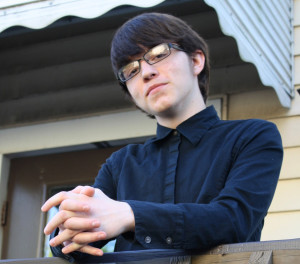 “Restorative practices helped me look at what I did wrong instead of always blaming other people,” says Joe RoyEighteen-year-old Joe Roy has been on a bumpy journey, but now he’s excited to launch himself into life.
“Restorative practices helped me look at what I did wrong instead of always blaming other people,” says Joe RoyEighteen-year-old Joe Roy has been on a bumpy journey, but now he’s excited to launch himself into life.
When he moved to a CSF group home and enrolled at CSF Buxmont’s Sellersville school at 16, Joe’s life was in turmoil. (Community Service Foundation and Buxmont Academy are model programs of the IIRP dedicated to providing education, counseling, foster care and other services to help young people and their families grow and change through restorative practices.) Joe's biological mother had given him up for adoption; then his adoptive parents rescinded their guardianship.
For months, Joe stirred up trouble at CSF, resisting authority and “exciting near riots” among his fellow students, says CSF Assistant Director of Day Treatment and International Institute for Restorative Practices (IIRP) Graduate School alumna Pam Thompson.
Joe himself says, “I was oppositional. And I didn’t like to hang out with people.” When Joe’s behavior crossed the line for the umpteenth time, he was told it was up to him to convince CSF to allow him to stay.
- Details
- Written by Joshua Wachtel
During the past year, two new Assistant Professors, Dr. Craig Adamson and Dr. John Bailie, have both been named to the IIRP faculty.
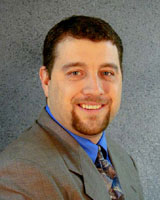 Since 1995, Craig Adamson has worked in IIRP's model programs, Community Service Foundation and Buxmont Academy (CSF Buxmont) in both counseling and administrative positions. Craig continues to serve as Executive Director of these organizations, whose services include day treatment/alternative education, in-home and community-based counseling, foster care and conferencing programs for at-risk youth and their families in eastern Pennsylvania. Craig's dedication to introducing restorative programming in community-based settings, empowering families, keeping youth connected to their families and providing quality restorative services to families and youth is central to his work at CSF Buxmont.
Since 1995, Craig Adamson has worked in IIRP's model programs, Community Service Foundation and Buxmont Academy (CSF Buxmont) in both counseling and administrative positions. Craig continues to serve as Executive Director of these organizations, whose services include day treatment/alternative education, in-home and community-based counseling, foster care and conferencing programs for at-risk youth and their families in eastern Pennsylvania. Craig's dedication to introducing restorative programming in community-based settings, empowering families, keeping youth connected to their families and providing quality restorative services to families and youth is central to his work at CSF Buxmont.
In addition to his experience and knowledge in administration and providing direct services to youth, Craig is also developing new online courses for the IIRP graduate school and bringing in leading edge thinkers from around the world. This spring he taught a course titled "Restorative Justice: Global Perspectives,"and this summer he will be teaching "Restorative Justice in Communities."
- Details
- Written by Joshua Wachtel
 "Evening sky over Tallaght, Dublin" by pc-world at Flickr Creative CommonsThe Irish Independent reports on a restorative practices program in Tallaght, a large neighborhood in Dublin, Ireland. In addition to having trained teachers in schools, the program also involves youth workers, local authorities and members of the community and has been carried out by the Childhood Development Initiative (CDI).
"Evening sky over Tallaght, Dublin" by pc-world at Flickr Creative CommonsThe Irish Independent reports on a restorative practices program in Tallaght, a large neighborhood in Dublin, Ireland. In addition to having trained teachers in schools, the program also involves youth workers, local authorities and members of the community and has been carried out by the Childhood Development Initiative (CDI).
According to the piece, "A survey found six out of ten people in the community said relationships were better between service providers and users, 47% reported improvements with work colleagues, and 14% said they got on better with neighbours."
IIRK UK & Ireland provided the initial training for the project as well as ongoing support and consultancy on restorative practices. It also provided the Training of Trainers for the project staff, and IIRP courses, workshops and materials continue to be used.
- Details
- Written by Joshua Wachtel
 Photo by Jim Capaldi at Flickr Creative Commons
Photo by Jim Capaldi at Flickr Creative Commons
"Drawing from both liberal and conservative values, restorative practices cultivate a society based on participation and mutual self-reliance, where as citizens we take greater responsibility for our own lives," argues IIRP President Ted Wachtel argues in an op-ed piece in today's Philadelphia Inquirer. He begins with a story from about an incident at a Bethlehem, Pennsylvania, high school:
In May 2012, the principal of Freedom High School in Bethlehem, Pa., dealt with four seniors who seriously vandalized the school during "senior week."
In the past, the students would simply have been punished and excluded from graduation. Instead, principal Michael La Porta, whose school began implementing restorative practices nine months earlier, organized a "restorative conference."

Restorative Works Year in Review 2024 (PDF)
All our donors are acknowledged annually in Restorative Works.
